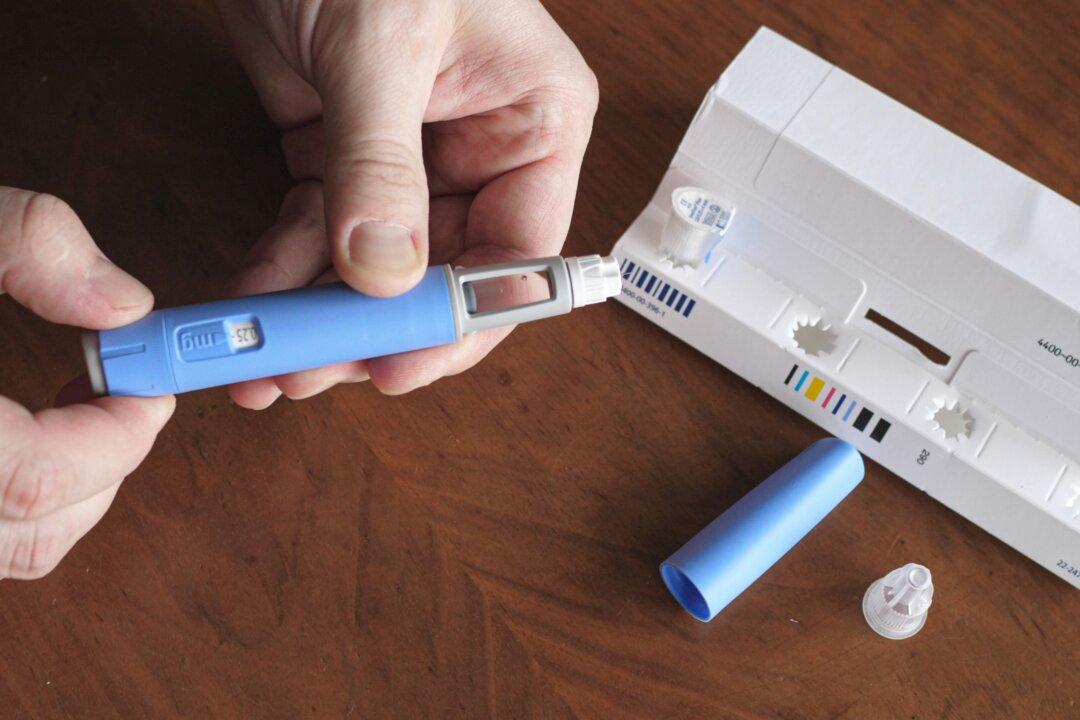Healthy Lifestyle Cut 50 Percent Long-COVID Risk: Study
Long-COVID symptoms can vary widely but may include fatigue, shortness of breath, chest pain, brain fog, and difficulty sleeping, among others. The condition can affect both people who experienced mild or severe cases of COVID-19.Researchers followed a cohort of 1,981 female health care workers with an average age of about 65 years who reported a positive COVID-19 test from April 2020 to November 2021. Among these, 44 percent developed the condition.
Participants completed a questionnaire about their lifestyles and were followed up for seven months. Long COVID was defined by researchers as presenting symptoms lasting for at least four weeks after the initial SARS-CoV-2 infection.
Researchers assessed six potentially modifiable lifestyle factors, including sleep, body mass index (BMI), smoking, alcohol consumption, diet, and physical activity.
Compared with women who didn’t adhere to any healthy lifestyle factors, those having five or six healthy lifestyle factors had a nearly 50 percent lower risk of long COVID.
The findings also show that among those who developed long COVID, participants living a healthier lifestyle before infection had a 30 percent lower risk of symptoms severe enough to interfere with daily life.
2 Most Important Factors: Sleep and Weight Loss
Of the six lifestyle factors researchers looked at, getting enough sleep and maintaining a healthy weight were among the most important factors. These are what people should first try to improve.1. Sleep to Maintain Strong Immunity
Sleep deprivation can alter our inflammatory immune processes through multiple pathways, Dr. Thomas Kilkenny, director of the Institute of Sleep Medicine at Staten Island University Hospital, part of Northwell Health in New York, told The Epoch Times.Kilkenny said that chronic short sleep duration—less than six hours, compared with longer sleep duration—was even associated with reduced long-term protection after receiving vaccinations.
“Sleep-deprived humans, as those with habitual short sleep—less than five hours—compared with seven to eight hours’ sleep, are more vulnerable to naturally occurring respiratory infections including cold, flu, and other common infectious diseases,” he added.
How much sleep you need changes with age.
Most adults need at least seven hours or more of sleep each night. It’s recommended that school-age children get at least nine hours a night and teens get between eight and 10.
“The issue is that we are often ‘too busy’ to schedule the correct amount of sleep in our day,” said Kilkenny. “The No. 1 recommendation is to set aside the correct amount of time to allow for appropriate sleep.”
- Go to bed at the same time each night and get up at the same time each morning.
- Make sure your bedroom is quiet, dark, relaxing, and at a comfortable temperature.
- Make sure that your bedroom is entirely dark using blackout curtains or room darkening shades to block outside street lights and early sunrises.
- Be physically active during the day.
2. Keep a Healthy Weight to Reduce Severe Disease Risk
Maintaining a healthy body weight is crucial for reducing the risk of infectious diseases. A recent study finds that obesity is associated with COVID-19 severity, and is itself a risk factor for experiencing PCCs.But diet is only part of the equation; it’s also important to be physically active.




